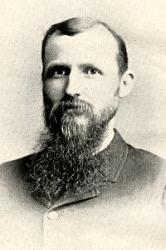Planning worship?
Check out our sister site, ZeteoSearch.org,
for 20+ additional resources related to your search.
- |
User Links
Person Results
George Frideric Handel

1685 - 1759 Person Name: Handel Composer of "SURSUM CORDA" in New Manual of Praise George Frideric Handel (b. Halle, Germany, 1685; d. London, England, 1759) became a musician and composer despite objections from his father, who wanted him to become a lawyer. Handel studied music with Zachau, organist at the Halle Cathedral, and became an accomplished violinist and keyboard performer. He traveled and studied in Italy for some time and then settled permanently in England in 1713. Although he wrote a large number of instrumental works, he is known mainly for his Italian operas, oratorios (including Messiah, 1741), various anthems for church and royal festivities, and organ concertos, which he interpolated into his oratorio performances. He composed only three hymn tunes, one of which (GOPSAL) still appears in some modern hymnals. A number of hymnal editors, including Lowell Mason, took themes from some of Handel's oratorios and turned them into hymn tunes; ANTIOCH is one example, long associated with “Joy to the World.”
Bert Polman
George Frideric Handel
D. E. Dortch

1851 - 1928 Arranger of "AULD LANG SYNE" in Hymns of Victory Born: March 5, 1851, Theta, Tennessee.
Died: November 9/11, 1928, Tennessee.
Buried: Rose Hill Cemetery, Columbia, Tennessee.
Dortch was teaching music in Maury, Tennessee, in 1880, and was working as an evangelist by 1886. His works include:
Tidings of Joy (Columbia, Tennessee: 1878)
National Tidings of Joy (Nashville, Tennessee: National Baptist Convention of America, 1878)
Gospel Melodies, with William Dale & Charles Pollock (Nashville, Tennessee: Cumberland Presbyterian Publishing House, 1890)
Spirit and Life, with Edmund Lorenz (Dayton, Ohio: Christian Publishing Association, 1893)
Choice Songs (Nashville, Tennessee: National Baptist Convention of America, 1894)
Gospel Voices (Nashville, Tennessee: South-Western Publishing House, 1895)
Gospel Voices No. 3 (Columbia, Tennessee: David E. Dortch, 1902)
Hymns of Victory, Parts 1 and 2 (Columbia, Tennessee: Dortch Publishing Company, 1905)
Happy Greetings to All (Charlotte, North Carolina: Dortch Publishing Company, 1916)
© Cyber Hymnal™ (www.hymntime.com/tch)
D. E. Dortch
David M. Moir
Person Name: Moir Author of "The Mighty God" in Hymns of Victory Moir, David Macbeth, was born at Musselburgh, Jan. 5, 1798. After attending the medical classes in the University of Edinburgh, he settled down as a doctor in his native place. In June, 1851, he went to Dumfries to recruit, but died there, July 6, and was buried at Inveresk, Musselburgh, July 10, 1851. His poems, selected and edited, with a memoir, by Thomas Aird, were published in 1852, in 2 vols., as The Poetical Works of David Macbeth Moir. He marked his graver contributions to Blackwood's Magazine with the signature "Delta" or Δ and in the number for August, 1832, there appeared "Devotional Melodies by Delta." These were three in number:—
1. Return, once more return, O wanderer.
2. O who is like the Mighty One.
3. How pleasant is the opening year.
and seem to have been the only hymns suited for public worship that he ever wrote. [Rev. James Mearns, M.A.]
--John Julian, Dictionary of Hymnology (1907)
David M. Moir


 My Starred Hymns
My Starred Hymns


